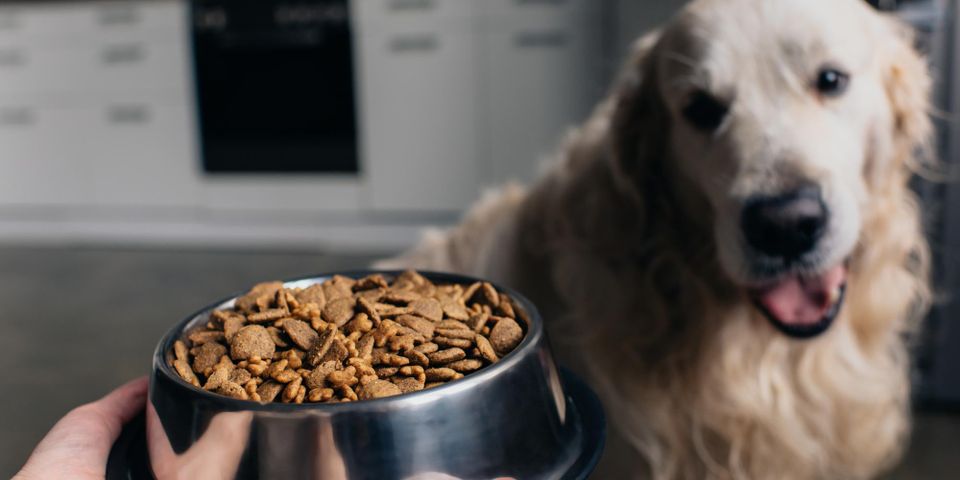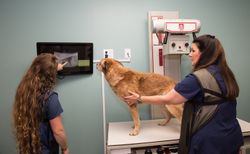
When your usually ravenous pup suddenly loses interest in their dinner, it’s cause for concern. Even dog owners who provide the best pet care like feeding high-quality food and ensuring their furry friends have daily exercise may experience this situation. Here are four potential causes for your dog’s low appetite.
4 Reasons Dogs May Not Want to Eat
1. They Got Into Something
 When a pup isn’t hungry, they might have eaten something other than their usual meals. Inspect your home for indications that they’ve swallowed something they shouldn’t have.
When a pup isn’t hungry, they might have eaten something other than their usual meals. Inspect your home for indications that they’ve swallowed something they shouldn’t have.
Check that they haven’t gotten into the trash, gorged themselves on dog food, or had a snack at the litter box. If there is evidence that your pup may have eaten something that could get stuck in the bowel—like a sock—head to a veterinarian immediately. Call poison control if they’ve swallowed substances like chocolate or cleaning chemicals. This unfortunate incident may require a trip to an emergency pet care practice to prevent the toxins from spreading.
2. Digestive Issues
Dogs can get upset stomachs from gut bacteria imbalances, eating something unusual, and even stress. If your pup is having digestive issues like vomiting or diarrhea, they may not want to eat. Consider offering them cooked rice with canned pumpkin. This change from their usual diet may spark their appetite; plus, the duo offers fiber to calm the stomach and address constipation or loose bowel movements.
3. Travel
Dogs can get finicky when exposed to new places. If you’re traveling with your pup or you’ve just returned home, your fur baby may struggle to relax because of the recent activity. Keep feeding the dog at the same time to maintain a schedule and soon they’ll chill out and want to dig in.
4. Dental Issues
Dogs are susceptible to oral problems like cavities and loose teeth. Older dogs are more likely to have tooth decay due to use, while puppies often lose teeth and struggle to eat hard food.
If your pup isn’t eating, inspect their mouth. Look for dark discoloration on the teeth and gums that could indicate cavities or gum disease. Try feeding watered-down kibble or wet food to make it easier to chew. If the dog doesn’t eat within 12 hours, contact a pet care professional to resolve the issue.
If you need a veterinarian in Sauk County, WI, contact Baraboo Valley Veterinary Clinic to set up an appointment. The practice is family-oriented and tailors treatment plans for every feline or canine patient. Call the Baraboo-area pet care practice at (608) 355-2882 or visit the website for information on their services, including diagnostics, wellness exams, vaccines, surgery, dental cleanings, and more.
About the Business
Have a question? Ask the experts!
Send your question

